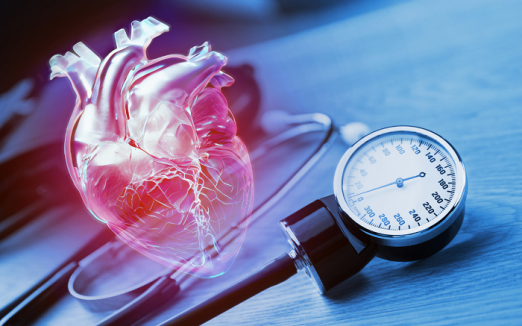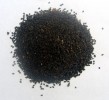Why does blood pressure increase in winter

January 8 kathmandu . According to the World Health Organization (WHO) , 1.28 billion people around the world suffer from high blood pressure or hypertension. According to a study by the American Heart Association published in 2023, the problem of blood pressure increases in cold weather.
High blood pressure means that there is difficulty in blood circulation throughout the body. During this time, the pressure on the walls of the blood vessels increases. They start weakening and the arteries start getting blocked. This is the reason why the risk of cardiovascular disease also increases in winter. Every year 18 million people die due to heart disease all over the world.
The risk of blood pressure increases in winter
When the temperature drops in winter, our brain sends a message to the body that the major organs of the body need heat to stay alive. As soon as the message is received, the body increases the blood flow towards the heart. After this, the blood vessels tighten so that less amount of blood goes to other organs and remains around the heart. As soon as the arteries become hard and narrow, the blood pressure increases. This is the reason that the risk of blood pressure also increases as the cold increases.
What complications can occur due to increased blood pressure?
Due to high blood pressure, there is a lot of pressure on the walls of the arteries. This can affect the blood vessels and many organs of the body. Dr. says that the higher the blood pressure and the longer it remains uncontrolled, the greater the damage.
What is the difference between systolic and diastolic blood pressure?
The blood pressure machine shows two readings. The upper reading is called 'systolic' and the lower reading is called 'diastolic' blood pressure. Systolic pressure means the pressure reading taken during the heartbeat. Diastolic pressure means the pressure reading taken between two heartbeats. This pressure is measured in mercury per milliliter, so it is written as mm Hg.
What is the blood pressure reading which is considered as hypertension?
A blood pressure reading of 120/80 is considered normal. Apart from this, understand at what level of blood pressure it is placed in which stage:
Normal blood pressure: When the blood pressure is 120/80 mm Hg or slightly less.
Elevated blood pressure: When the systolic pressure is 120 to 129 mm Hg and the diastolic pressure is not more than 80 mm Hg.
Stage 1 hypertension: When systolic pressure is between 130 and 139 mm Hg or diastolic pressure is between 80 and 89 mm Hg.
Stage 2 hypertension: When the systolic pressure is 140 mm Hg or higher or the diastolic pressure is 90 mm Hg or higher.
For those who do not have hypertension, do their chances of getting it increase in cold weather?
If someone's blood pressure readings are in elevated mode, then he may be at a higher risk of hypertension. This means that if the systolic pressure is 120 to 129 mm Hg and the diastolic pressure is close to 80 mm Hg, then the person is at a higher risk of hypertension when the cold increases.
Apart from this, those people whose blood pressure is normal, their risk of elevated blood pressure increases when the cold increases.
What signals does the body give when blood pressure is high?
Most people do not show any symptoms when their blood pressure is high. Many times people's blood pressure is high in an emergency situation. Despite this, they are not able to know about it.
Some people may experience these symptoms when their blood pressure rises:
- Headache
- Chest pain
- Back pain
- Difficulty in breathing
- Difficulty speaking
- Epistaxis (bleeding from the nose)
- sexual dysfunction
Do we have to take more hypertension medicines in winter?
No, this does not happen. If there are no complications due to the increase in cold, then the usual medicines are enough. However, when the temperature drops, the doctor can increase the dose of medicines to manage blood pressure.
What will happen if your blood pressure is high and you are not taking medicine?
If the blood pressure remains high continuously, not taking medicine can definitely have serious consequences. If left untreated, high blood pressure can increase the risk of many health problems. For example, a heart attack, stroke or kidney disease can occur. If the blood pressure increases too much, heart failure can occur or it is possible that someone may lose their eyesight.
Can blood pressure be managed without taking medicine?
Yes, you can definitely do it. Even if you are not taking medicines to manage blood pressure, it can still be managed. However, in a condition like stage 2 hypertension, do consult a doctor.
Do these 10 things to manage blood pressure without taking medicine:
- First of all, lose weight. Reduce the fat around your waist.
- Exercise or jog for at least 30 minutes every day.
- Eat a healthy diet. Eat whole grains, vegetables, and low-fat dairy products.
- Reduce the amount of salt and sodium in your diet. Avoid processed food.
- Reduce your alcohol consumption or avoid it altogether.
- Quit smoking.
- Take at least 7 hours of sound sleep daily and sleep early.
- Manage stress of body and mind.
- Keep checking your blood pressure regularly at home.
- Keep your cholesterol level and blood sugar under control.
What is the best way to manage blood pressure in winter?
If you have high blood pressure, avoid being exposed to cold. Do not go out of the house very early in the morning or in the evening. Complete important tasks during the day only. Always wear warm clothes when you go out or at home.
If you have hypertension, what should you eat and what should you not eat?
If you have high blood pressure problem then avoid these:
- eating a lot of fried food
- Processed Food
- Red Meat
- Too much salt
- Coffee
- Sugar
- Liquor
- Cigarette
You should eat and drink these:
- Seasonal Fruits
- fresh green vegetables
- Whole grains
- 8-10 glasses of water a day
Share this with your friends:
प्रत्येक महिला पुरुषभन्दा कमजोर छैनन् : कमला भासिन
 नरेश ज्ञवाली ►
भदौ २७, काठमाडौं। दक्षिण एसियामा लैङ्गिक समानता, शिक्षा, गरिबी निवारण, मानवअधिकार र शान्तिका...
नरेश ज्ञवाली ►
भदौ २७, काठमाडौं। दक्षिण एसियामा लैङ्गिक समानता, शिक्षा, गरिबी निवारण, मानवअधिकार र शान्तिका...
पुरुष कलमले पूर्ण नारीलाई लेख्न सक्दैन
 काठमाडौं। मान्छेहरू कडा भएर बोलेको भन्दा नरम भएर बोलेको मनपर्छ । खरा कुराभन्दा नरम, सरस र सलिल कुराहरू मनपर्छ । तर...
काठमाडौं। मान्छेहरू कडा भएर बोलेको भन्दा नरम भएर बोलेको मनपर्छ । खरा कुराभन्दा नरम, सरस र सलिल कुराहरू मनपर्छ । तर...
कालो तिलले कम्मर दुखेको र अनुहारमा भएको पोतोको उपचार गर्छ
 काठमाडौं । कालो तिल अथवा तिलबाट प्राप्त हुने बिऊ तेल उत्पादनको लागि प्रयोग गरिन्छ । अनुहारमा चायाँ, पोतो वा दाग,...
काठमाडौं । कालो तिल अथवा तिलबाट प्राप्त हुने बिऊ तेल उत्पादनको लागि प्रयोग गरिन्छ । अनुहारमा चायाँ, पोतो वा दाग,...
दुबईमा पहिलो पटक नेपाली कल्चरल पहिरनको फेसन शो सम्पन्न
 काठमाडौं। गत माघ २८ गते दुबईमा नेपाली कल्चरल पहिरनको फेसन शो पहिलो पटक फेसन फ्युजन २०१७ सम्पन्न भयो । एनआरएन...
काठमाडौं। गत माघ २८ गते दुबईमा नेपाली कल्चरल पहिरनको फेसन शो पहिलो पटक फेसन फ्युजन २०१७ सम्पन्न भयो । एनआरएन...
उमेर अनुसारको हुनुपर्छ खान्की, अनि मात्र मानिस स्वस्थ रहन्छ
 काठमाडौं। पोषणको आवश्यकता उमेरअनुसार परिवर्तन हुन्छ । उमेरको हरेक अवस्थामा स्वयंलाई स्वस्थ राख्न शरीरलाई...
काठमाडौं। पोषणको आवश्यकता उमेरअनुसार परिवर्तन हुन्छ । उमेरको हरेक अवस्थामा स्वयंलाई स्वस्थ राख्न शरीरलाई...
यी भोजन खाए छाला सुन्दर हुन्छ !
 काठमाडौं। स्ट्रबेरी : यो भिटामिन सीले भरपुर हुन्छ । भिटामन सीले छालालाई चाउरीबाट जोगाएर सधैं जवान राख्न मद्दत...
काठमाडौं। स्ट्रबेरी : यो भिटामिन सीले भरपुर हुन्छ । भिटामन सीले छालालाई चाउरीबाट जोगाएर सधैं जवान राख्न मद्दत...
मुलुकका सम्मानित पदमा महिलाको उपस्थिति, सबैका लागि आशाको ढोका उघारे
 काठमाडौं। अहिले नेपालका तीनवटै अंगका प्रमुख महिला भएकाले नेपाली राजनीतिक क्षेत्रमा मात्र नभएर सामाजिक...
काठमाडौं। अहिले नेपालका तीनवटै अंगका प्रमुख महिला भएकाले नेपाली राजनीतिक क्षेत्रमा मात्र नभएर सामाजिक...
लोग्नेमान्छेको जात केटी देखेपछि.....
 काठमाडौं । शान्ताको विवाह भएको पाँच वर्ष बितिसक्दा पनि छोराछोरी भएनन् बरु उनलाई एकाएक ब्लड क्यान्सर भयो । समयले...
काठमाडौं । शान्ताको विवाह भएको पाँच वर्ष बितिसक्दा पनि छोराछोरी भएनन् बरु उनलाई एकाएक ब्लड क्यान्सर भयो । समयले...
मनोसामाजिक समस्या के हो?
 साउन ११, काठमाडौं । मनोसामाजिक समस्या भन्नाले मन र समाज वीच हुने समस्या हो । यो जो कोही व्यक्तिलाई पनि हुन सक्छ ।...
साउन ११, काठमाडौं । मनोसामाजिक समस्या भन्नाले मन र समाज वीच हुने समस्या हो । यो जो कोही व्यक्तिलाई पनि हुन सक्छ ।...
महिलाको दोस्रो विवाहको कुरा सुन्दा पढेलेखेकैले अनुहार बिगार्छन्
 काठमाडौं। दोस्रो विवाहबारे मैले नसोचेको, नचाहेको होइन । तर, म मेरा आत्मीयसँग फेरि विवाह गर्नेबारे कुरा गर्छु,...
काठमाडौं। दोस्रो विवाहबारे मैले नसोचेको, नचाहेको होइन । तर, म मेरा आत्मीयसँग फेरि विवाह गर्नेबारे कुरा गर्छु,...










